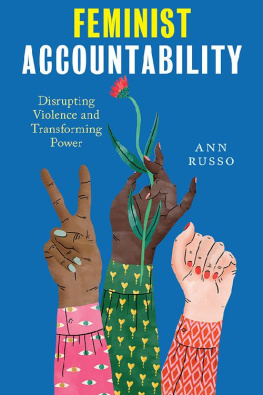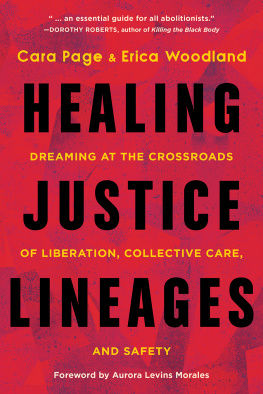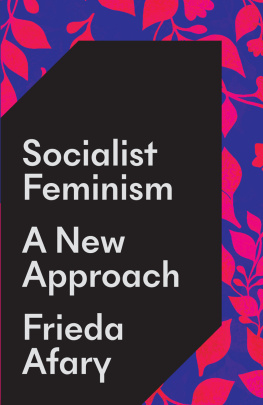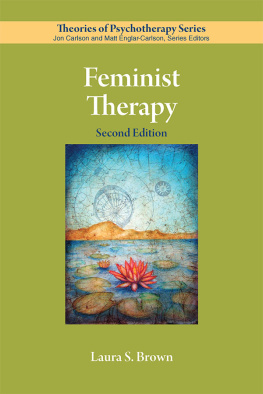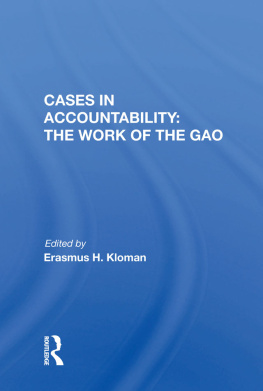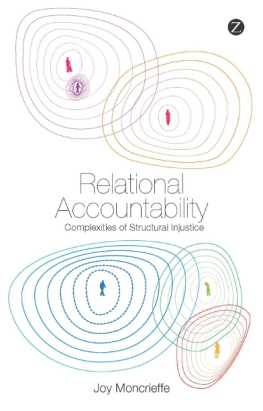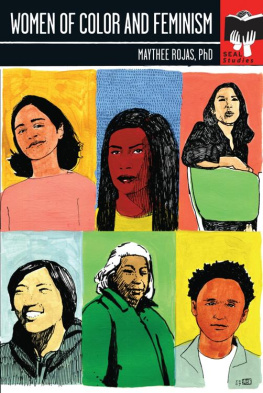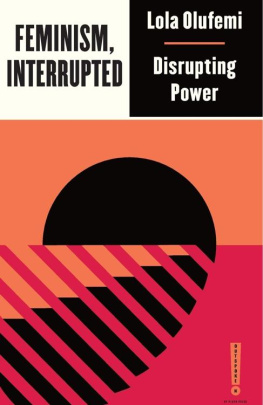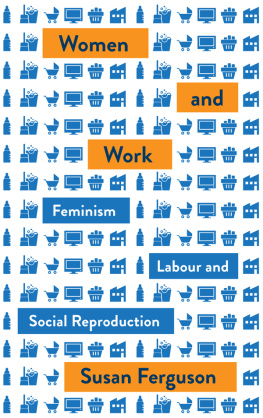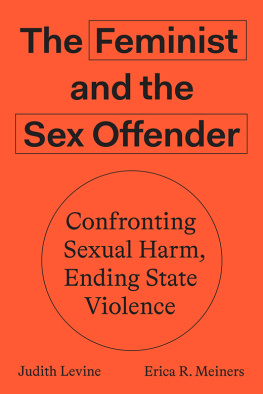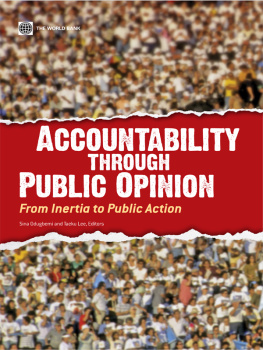Feminist Accountability
Feminist Accountability
Disrupting Violence and Transforming Power
Ann Russo

NEW YORK UNIVERSITY PRESS
New York
NEW YORK UNIVERSITY PRESS
New York
www.nyupress.org
2019 by New York University
All rights reserved
References to Internet websites (URLs) were accurate at the time of writing. Neither the author nor New York University Press is responsible for URLs that may have expired or changed since the manuscript was prepared.
Library of Congress Cataloging-in-Publication Data
Names: Russo, Ann, 1957 author.
Title: Feminist accountability : disrupting violence and transforming power / Ann Russo.
Description: New York : New York University Press, [2019] | Includes bibliographical references and index.
Identifiers: LCCN 2018020948| ISBN 9780814777169 (cl : alk. paper) | ISBN 9780814777152 (pb : alk. paper)
Subjects: LCSH: Feminism. | Responsibility. | Feminist theory. | WomenViolence against. | Sex discrimination against women.
Classification: LCC HQ1155 .R87 2019 | DDC 305.42dc23
LC record available at https://lccn.loc.gov/2018020948
New York University Press books are printed on acid-free paper, and their binding materials are chosen for strength and durability. We strive to use environmentally responsible suppliers and materials to the greatest extent possible in publishing our books.
Manufactured in the United States of America
10 9 8 7 6 5 4 3 2 1
Also available as an ebook
For Frannie and Cece
Contents
Cultivating Feminist Accountability
If we ask ourselves the most simple questions, such as where do we get our food from, we can see that we are tied up in networks of relationships with millions of other people. Our actions are constantly creating, recreating, challenging and transforming the networks of relationships that make up the fabric of our shared world. We influence the fabric of society by the choices we make, about whose actions we choose to acknowledge and whose we choose to ignore; by where we take a stand and where we choose not to; by how we treat others and how we expect to be treated.
C. Kaufman, A Users Guide to White Privilege
What does it take to build communities to struggle against the multitude of injustices we face and to create the social change we envision necessary for the world in which we want to livea world with love, liberation, and justice at its center? How do we work together to transform the deep historical, structural, and interlocking systems of oppression and violence that shape our relationships with one another without reproducing these same systems and the violence they produce?
In thirty-plus years of participation in antiracist, feminist, and queer antiviolence critical-consciousness community building, organizing, and activism, the most important lesson I have learned is that our praxis often reproduces the very power dynamics that we are seeking to transform. So often the hierarchical and inequitable divides produced by global capitalism, imperialism, white supremacy, patriarchy, and heteronormativity get played out in our relationships and communities as well as in our organizations, activism, and advocacy. In teaching, writing, and organizing around the everyday oppression and violence that I would suggest that these questions are integral to building theory, research, and action against the entrenched violence that shapes the conditions of our lives. They reveal how much our choicesas individuals, organizations, and communitiesare often embedded within these systems, rather than resistant to them. They are questions thus that compel us to become more critically aware of and to take accountability for the impact of the ways we imagine, embody, and live the world that we envision for a future not yet here.
They are also questions I ask myself daily as I make my own choices in the midst of pervasive interpersonal, community, and state violence produced by the interlocking systems of oppression and in the context of my lived experience as a white, professional-class, queer, cis-gendered, monolingual, English-speaking woman with US citizenship, with deep love, belonging, and commitments within my multiracial and transnational families, communities, and movements for change. Because of how embedded I am, and we are, in these systems, our emotional, intellectual, and political responses to oppression and violence as well as our strategies and visions for change may reproduce the very violence that we are striving to transform. This is the case not because we are individual failures but rather because of how enmeshed we are in the very systems we are organizing to change. As Morgan Bassichis, a former collective member of the Oakland-based Communities United Against Violence, so aptly notes, the very systems we are working to dismantle live inside of us. And yet we often act as if these structures, ideologies, and power lines are outside of ourselves, our groups, and our efforts, and so we do not consistently question how they are shaping our identities, our relationships, and our organizations, as well as our ideas, strategies, and visions.
These inequitable divides and the culture that supports them are the fault lines that undermine, fracture, and disable feminist antiviolence efforts. For instance, despite the critical efforts of many, the most prominent and funded feminist and LGBT antiviolence organizations have become mainstreamed into social service, advocacy, and policy reform projects. These projects tend to replicate, rather than undermine or disrupt, the institutional, structural, and community-based power lines built through historical and interlocking systems of oppression. They tend to resist naming the multiple power lines that differentially shape the lives of the different communities they serve, that structure the relational hierarchies within the organizations, and that shape their agendas and practices. Their work is often embedded in the dominant ideologies, norms, and perspectives of neoliberal capitalism. This means they often approach violence through a social service and criminal legal lens that understands violence as an individual and interpersonal issue, rather than a social and political one. This means they often ally with, rather than significantly challenge, the state institutions, policies, and systems that underlie and contribute to the endemic violence we are facing.
The results of these dominant approaches are that under the broad rubric of feminism and LGBT activism, we witness uncritical commitment to entrenched carceral frameworks that rely on the police and the criminal legal systems for protection, incarceration, and punishment despite their brutal impact on poor, immigrant, queer, and trans communities of color. We witness support for US militarism and war grounded in Islamophobia and anti-Arab racism as a way of securing womens and LGBT rights. We witness silence in the face of police brutality and murder of people of color in the United States and of US militarist violence and occupation through the war on terrorism, including violence against women and queer, gender-nonbinary, and transgender people. We witness the white middle-class heteronormative ideology and practice of antiviolence social services and legal advocacy turn away from women, queer and trans people, and/or immigrants who are impacted by the sex trade, who are non-English-speaking, who live in the United States without legal documentation, who live with disabilities, who are formerly incarcerated, and/or who are struggling with drug or alcohol addictions, and more. We witness rape crisis agencies that do not speak out or offer support and advocacy for women, queer, and trans folks raped and assaulted by the police, immigration officials, and prison guards across the world. We witness resistance to creating the necessary space for front-line workers, often working-class women of color, to process the trauma, grief, and exhaustion connected to the work and to the daily impact of oppression and violence because our accountability is to the funders and their expectations, rather than to those most impacted by violence. And we witness resistance to the voices and perspectives of feminists of color, queer and trans feminists, and transnational feminists who seek to address internal power lines within the movement that contribute to the pervasive violence facing those most marginalized in the service of preserving the framework that serves the organizational funders, including the state.

